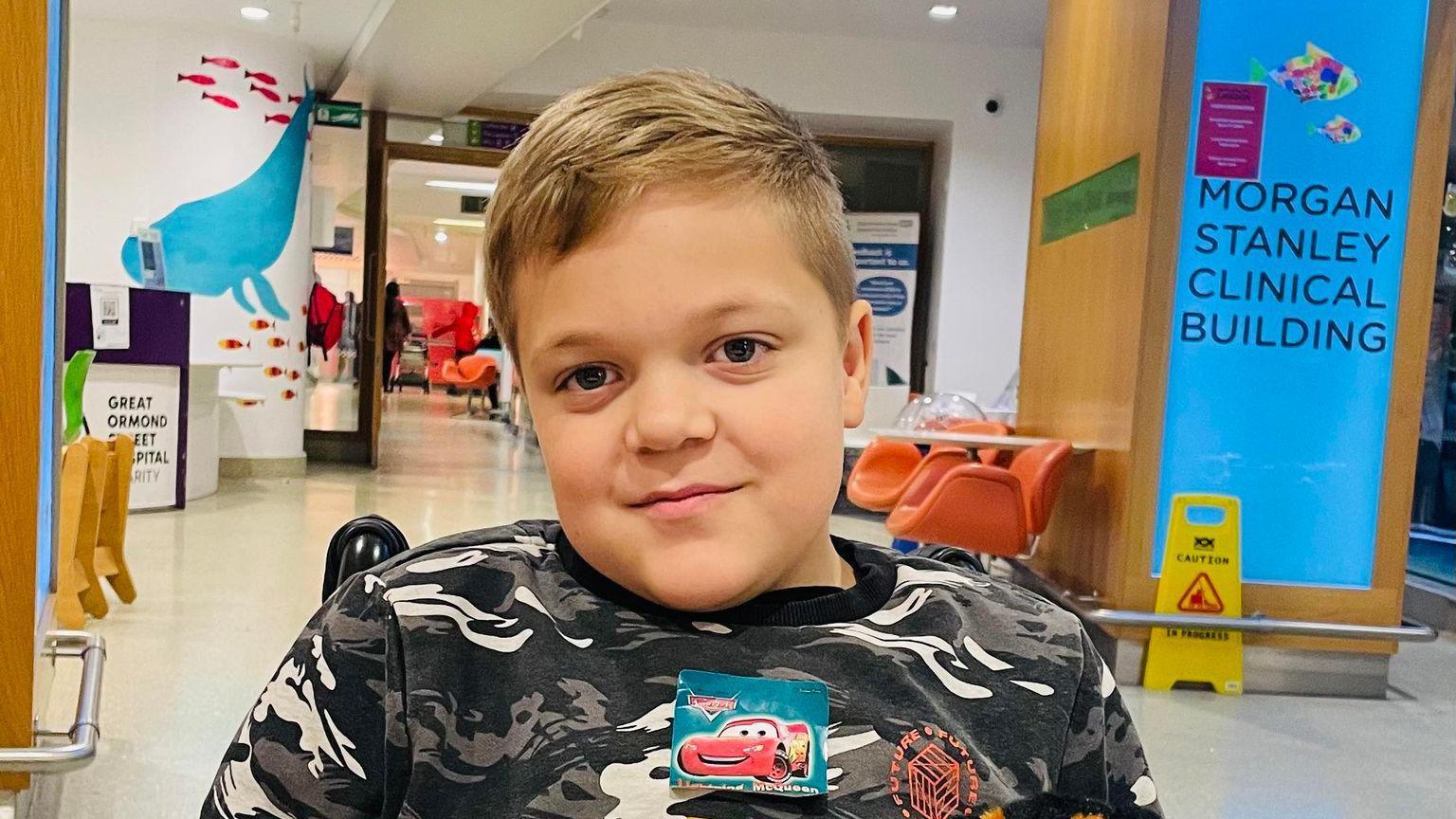'We don't know how a rare illness will affect our boy'
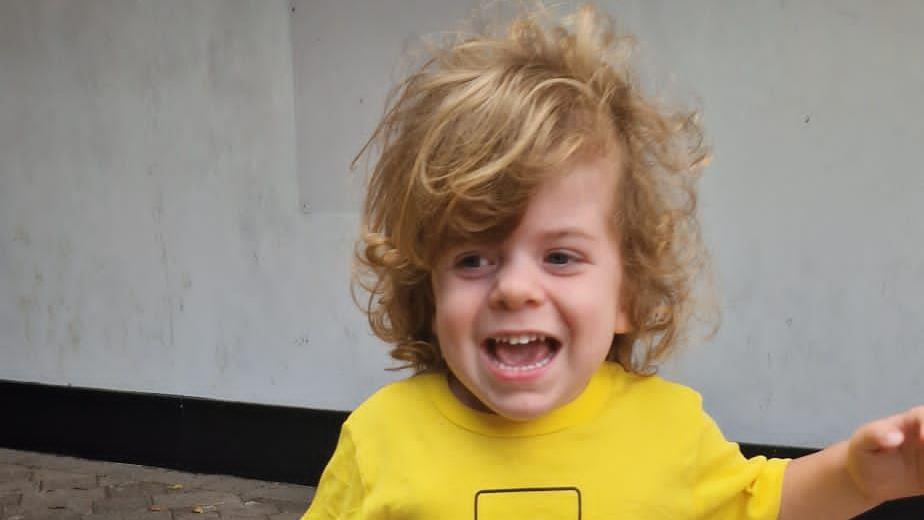
Three-year-old Wilfred is taken to London weekly to receive treatment for his MPS II disease
- Published
A year ago, the family of three-year-old Wilfred had never heard of Mucopolysaccharide (MPS) - but now they are overwhelmingly familiar with the condition.
Wilfred, from Ipswich, was diagnosed with the rare illness after his parents David and Katie took him for a routine health check up.
Initially it was thought he was developing slower than children his age, but doctors later diagnosed him with MPS II - also known as Hunter disease - which can affect people in different ways.
One in every 100,000 to 170,000 male babies are born with it annually, but it is not yet clear how it will impact Wilfred.
David said he was not initially concerned that Wilfred had not started to walk last year, but doctors wanted to do checks to determine what could be delaying him.
"They checked for all [type of things] and everything came back negative, but there was something that someone had identified at another hospital," he explained.
"They said, 'OK, that looks a bit strange, that should be investigated'.
"Eventually that came back through Great Ormond Street and they said, 'we believe that this is a rare genetic disorder which is called MPS'."
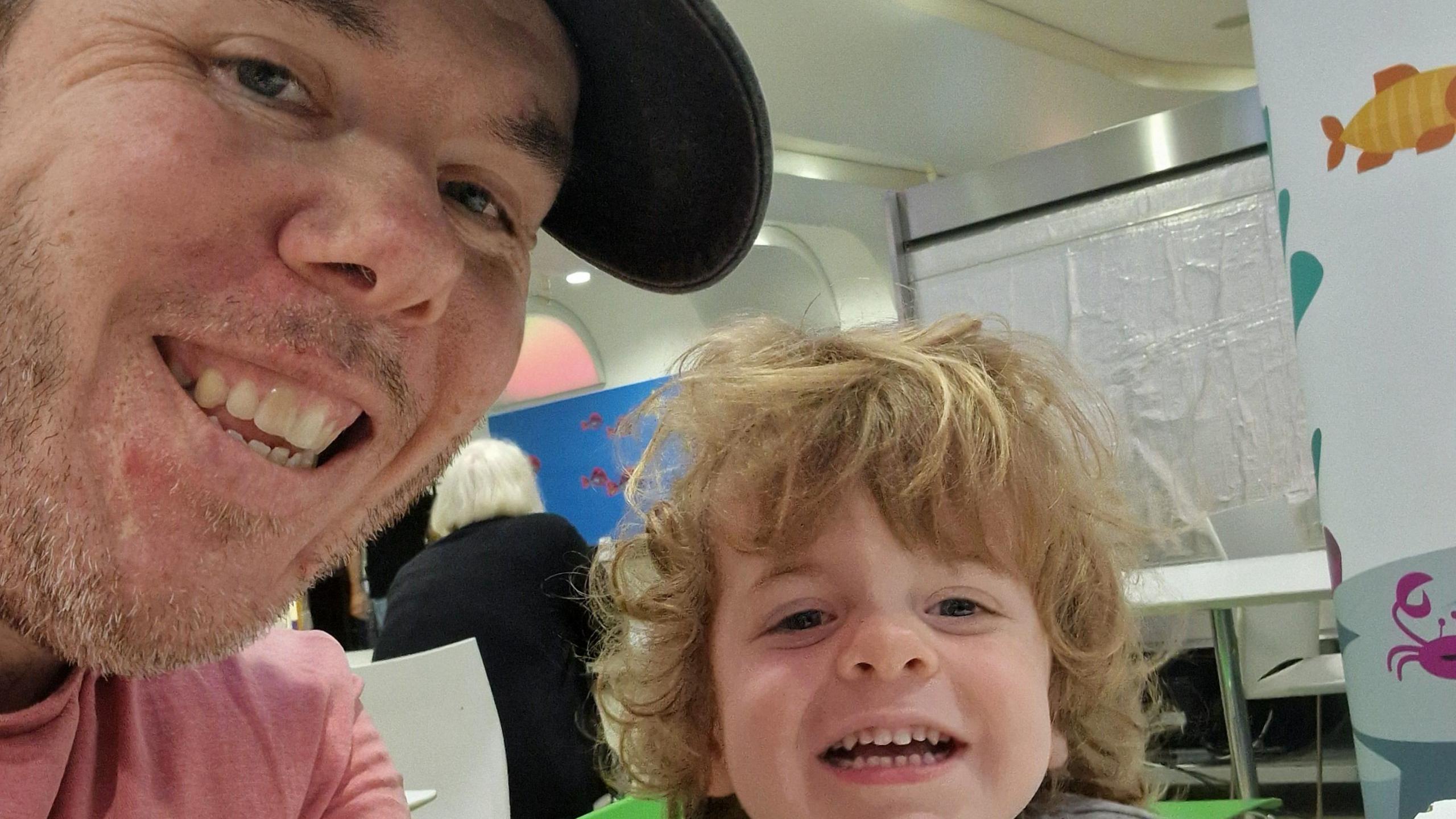
David wants to raise as much awareness as possible about MPS
MPS II means Wilfred is missing or is low in an enzyme called iduronate 2-sulfatase.
This results in his body being unable to recycle molecules it should be and instead they remain in his body.
However it can affect people differently, while babies and younger children may show little signs of the disease.
"He's not really speaking too much - he has his words here and there but again you don't know if that is the MPS or if [it is because] he's quite young," David said.
"Those kinds of things will become more obvious the older he gets.
"He's going to have grommets for his hearing and maybe that will improve things, we don't know.
"In terms of life expectancy that's also something... you just don't know.
"It's such a hard thing to pinpoint because it does impact every single person in a completely different way."
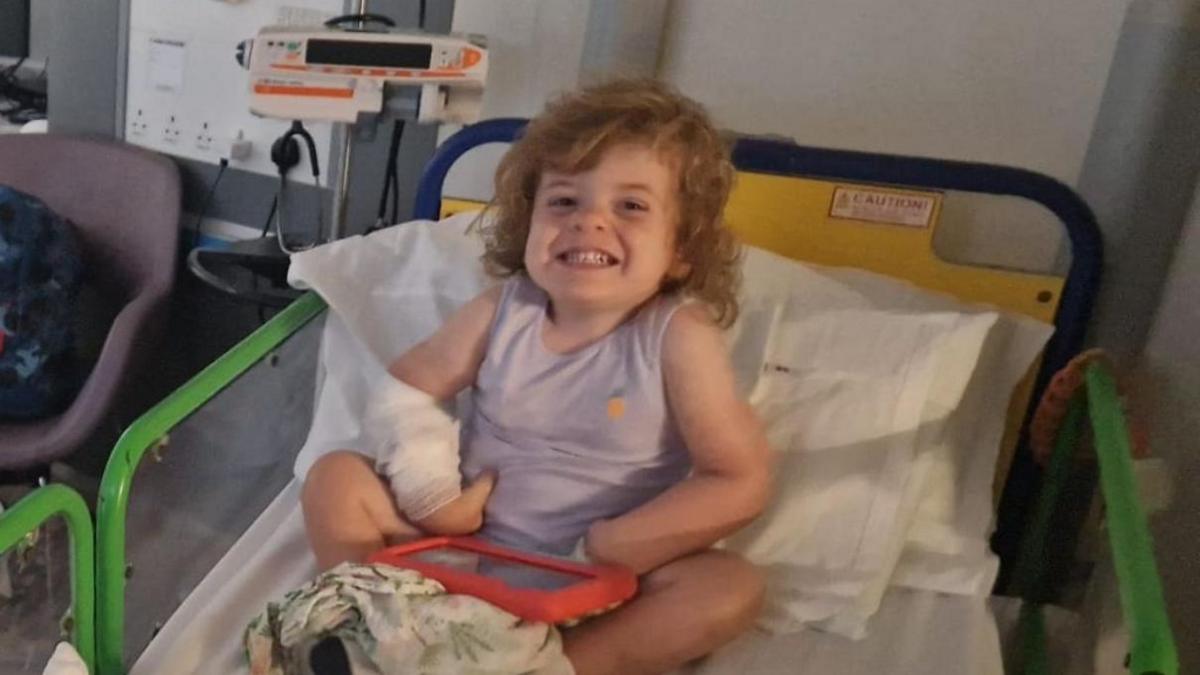
Wilfred is currently taking part in a medical trial that offers him a different type of enzyme replacement therapy
While there is no cure, Wilfred is taken to Great Ormond Street Hospital, external in London every week to undergo enzyme replacement therapy, which is administered through a drip for three or four hours.
"He's on a medical trial there at the moment, which is a different type of therapy. [Doctors] hope it may be more effective than the one he would generally have," David continued.
"For the next two years we're going to be doing that, so every Wednesday we have to take him to Great Ormond Street.
"After that it will just be home therapy, so a nurse comes around each week and does that.
"That will be every week for life."
While the trial helps pay for the costs, David said there had been a "mental cost" for the family.
"It is exhausting for everyone," he said.
"We've still got two daughters and both of us are in full-time employment as well, it's very much trying to find that balance.
"Everyone says you've got to make sure you look after yourself as well, but when do you find the time for that?"
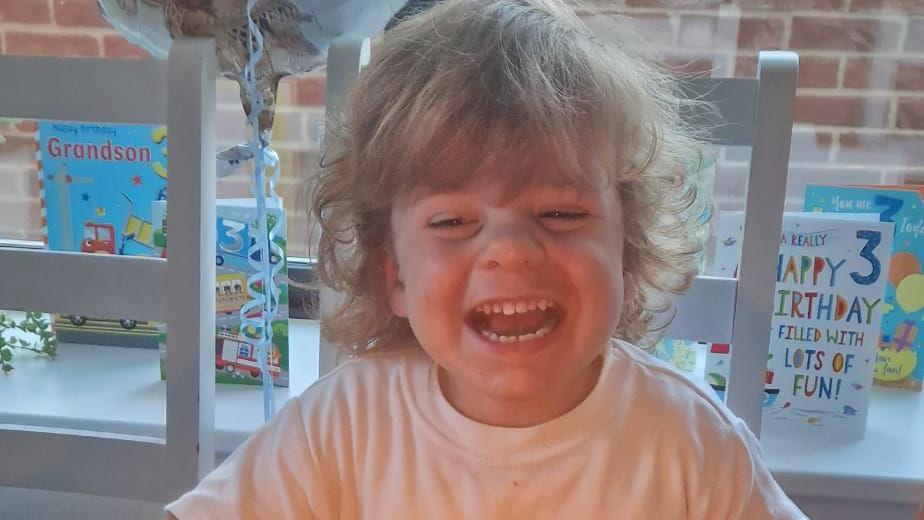
Wilfred's two older sisters have been looking after him and supporting him
David praised Wilfred's two older sisters for helping support him and said the family had ensured they still had their own life.
He thanked his family and friends for the support they had also given them all.
The family, which has been supported by The MPS Society, external as well as East Anglia's Children Hospices, external, want to raise awareness of MPS.
"I'm trying very hard to be as open about all of this as possible, because other [difficult] stuff that I had in my life previously I've just buried it and got on with life," David said.
"With this, because it's not just me it's the kids, family, home life, everything, the more open you are about it, if you can be, and talk to people as and when is fine."
Get in touch
Do you have a story suggestion for Suffolk?
Follow Suffolk news on BBC Sounds, Facebook, external, Instagram, external and X, external.
Related topics
Stories like this
- Published28 September 2024
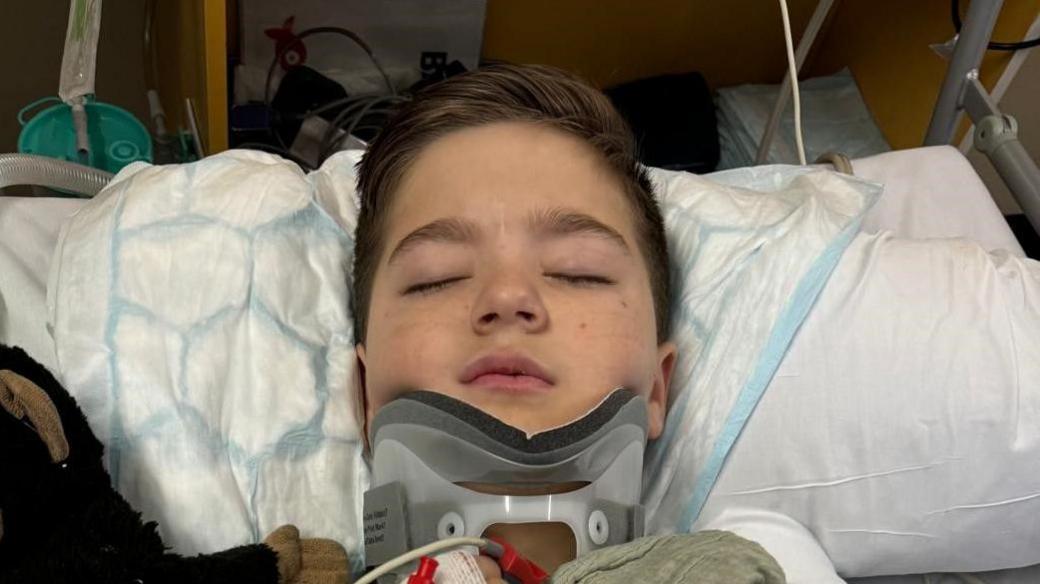
- Published27 August 2024
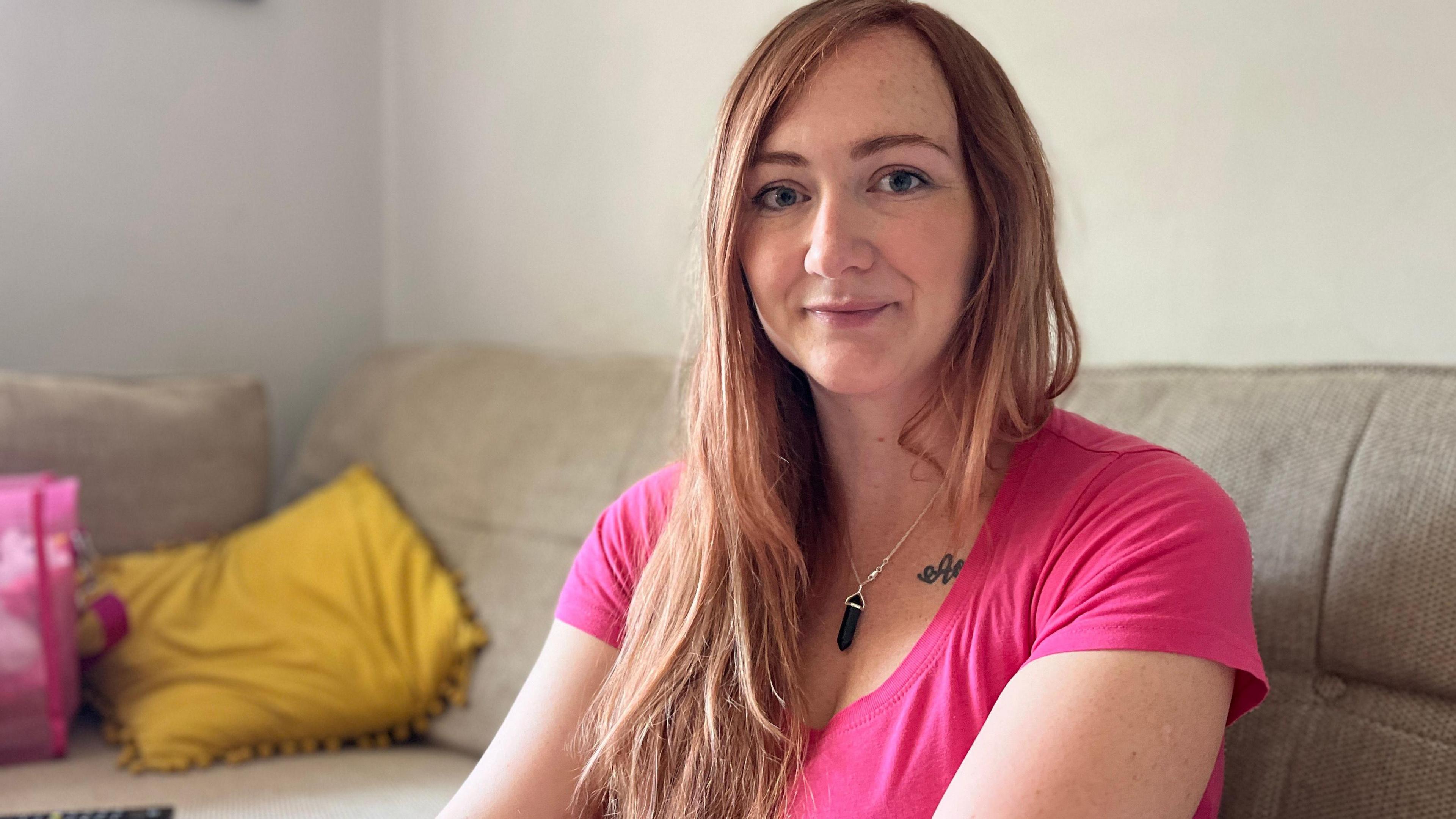
- Published9 June 2024
